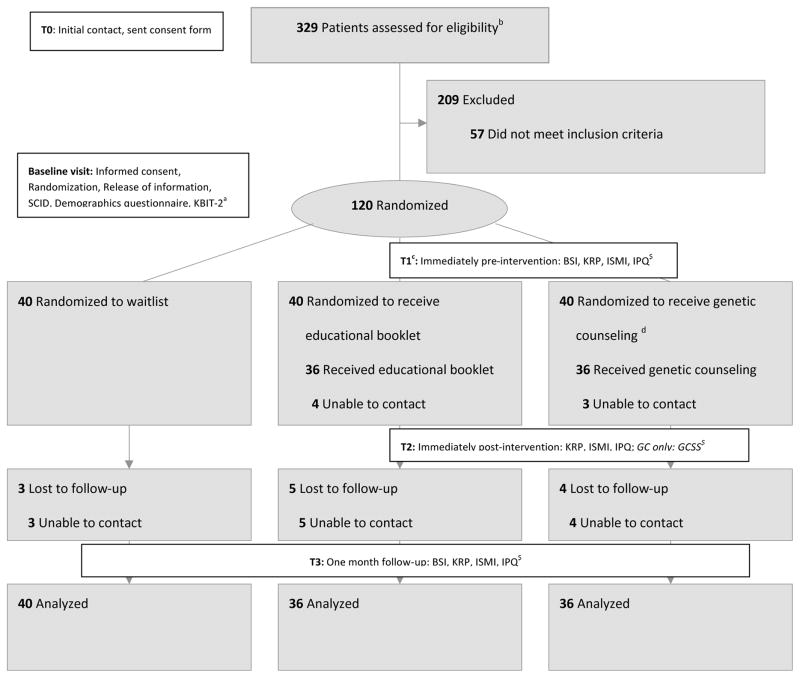Figure 1.
Flow of participants through the trial
a Abbreviations: SCID = Structured Clinical Interview for Diagnosis; KBIT-2 = Kaufman Brief Intelligence Test version 2; BSI = Brief Symptom Inventory (current symptoms); KRP = Knowledge and Risk Perception Questionnaire; ISMI = Internalized Stigma of Mental Illness Scale; IPQ = Illness Perception Questionnaire (perceived control); GCSS = Genetic Counseling Satisfaction Scale. At the time of study initiation, there were no existing data about the impact of GC for individuals with SMI, and the effect sizes for our outcome variables were unknown. Therefore, we based our a priori power calculation on the effect of GC for hereditary cancer on increasing knowledge and diminishing anxiety16.
bWe used diverse recruitment strategies to reach potential participants, including: posters in psychiatrists’ offices/waiting areas/inpatient units, online advertisements, direct approach at community mental health organizations’ meetings/events, direct approach at low-income housing units catering to those with mental illness, emails to mental health professionals and clients’ listservs, and mental health practitioners providing information about the study (recruitment brochure) to their patients.
CFor the waitlist group, baseline and T1 occurred on the same day. Participants had the option of bringing a support person with them to appointments if they wished. In-person visits were arranged for some participants to complete the outcome measures at one month follow-up at their request. One of the participants in the waitlist group had received GC for SMI prior to the study. The trial was stopped once the pre-determined number of participants had been recruited and those who were not lost to follow up had completed the study. The full protocol can be obtained from the corresponding author.
dOne patient discontinued participation because of rapid exacerbation of illness.

